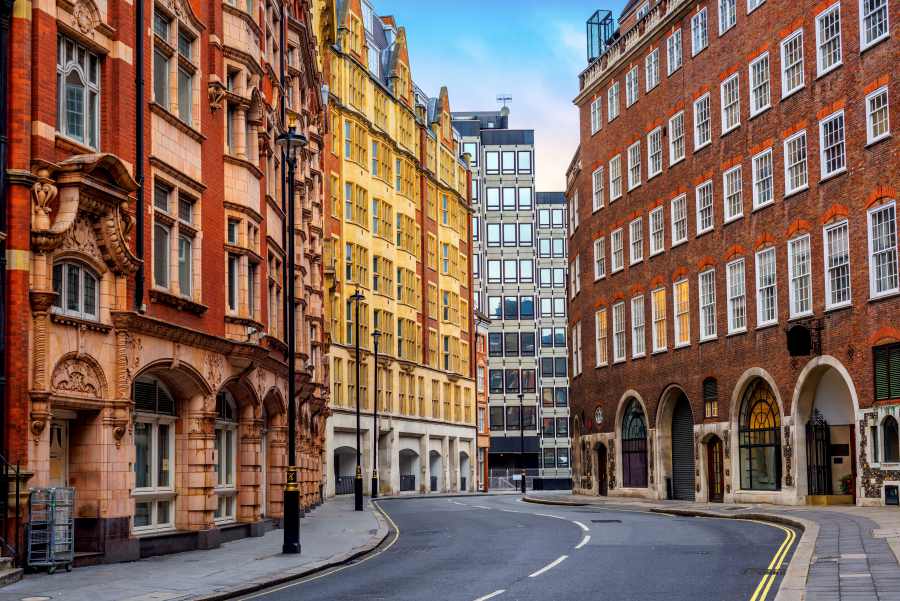Much like many other large metropolitan locations, London has not been spared in terms of the recent health crisis. While the effects of COVID-19 are still taking their toll, we need to look towards the future when this crisis will come to an end. What can we expect in terms of London property rentals and are there any professional tips to keep in mind? Let’s take a look at the answers to these decidedly challenging questions.

The Predicted State of Affairs
To be absolutely clear, it should come as no great surprise that the London property markets have taken a battering as a result of the COVID-19 crisis. Some industry experts such as Professor Andrew Baum have even predicted that rental prices may fall by between 20 and 30 per cent before they eventually stabilise.
So, what might this mean for potential prices in the future? Such a question is difficult to answer, but there are still a handful of possible conclusions which we can draw. The first involves additional figures which have already been released. Figures released by Savills saw prime rents throughout London drop by two per cent during the second quarter of 2020. While there is no doubt that prices should recover, we also need to look at the bigger picture in regards to how COVID-19 is beginning to change the attitudes of renters as a whole.
Tenants Reassessing Their Requirements
As we all know, one of the primary driving forces behind historical London rental prices is the simple relationship between supply and demand. A lower supply and a higher demand will obviously cause prices to rise and the reverse is just as true.
The main issue here is that the term “business as usual” certainly has no place within the business community. Due in no small part to the social distancing restrictions put in place, many individuals have been forced to work from home. A sizeable majority of these employees are likely to continue doing so well into the future. Thus, anyone who previously rented a property in London due to a proximity to their place of employment may indeed reassess such a move. Those who might have been previously considering moving to London for work might no longer need to do so. Should this equate to a dramatic fall in demand, it is logical to assume that London rental prices will decrease even further.

The Rise of Try-Before-You-Buy Tenancy
COVID-19 also seems to have had an impact upon renter profiles in general. As countless individuals have had to re-evaluate their lifestyles and adopt a decidedly more pragmatic approach due to an uncertain future, it is thought that the number of London renters will rise in the coming year.
In fact a full 64 per cent of individuals who were surveyed in June said that they would be inclined to rent a London property if buying was not an option. This is good news in terms of supply and demand, as an increase in renters could help the market begin to stabilise.
Catering to Tenant Demands
Perhaps the most obvious trend is the simple fact that the UK economy as a whole has taken a battering in recent times. While this downturn is not as severe as some had expected, the fact of the matter is that countless individuals are still on furlough. Thus, it I quite understandable that landlords will have to accommodate for the needs of individuals who might have difficulty making ends meet (at least for the time being). This is also one of the very same reason why the UK government has postponed the majority of evictions; millions of renters are still out of work. Until the economic situation stabilises, we are not likely to see rental prices within London rise significantly.
What About Corporate Demand?
It is just as prudent to take a quick look at how (and why) corporate rental demands within London are changing. Since the end of June, we have witnessed a steady increase in rental requests from within the professional sector. Interestingly enough, it appears as if many businesses are now looking for larger London properties. We can draw a handful of conclusion from this observation:
- Businesses are hoping to accommodate senior staff within these properties
- Some firms are still keen to embrace traditional in-house operations.
- 2020 and 2021 budgets are predicted to be higher when compared to those associate with 2019 and pre-pandemic levels.
Of course, there are always exceptions. Smaller enterprises which have struggled due to a lack of revenue could actually be choosing to curtail their operations and instead to promote telecommuting in order to reduce in-house costs. This is why appreciating the “big picture” is always crucial.

The Bottom Line
Although the recent health crisis has had a dampening effect upon London rental prices, most experts agree that this is a short-term phenomena. Some conservative professionals estimate that 2021 rental growth in greater London will hover somewhere around one per cent. Prime Central properties may experience increases of 1.5 per cent when compared to 2020 figures. This is why landlords and renters alike need to keep abreast of the latest news in order to be able to make informed decisions.
This global pandemic will sooner or later come to an end. This is why it is now more important than ever before to appreciate where the London rental market may be headed in the not-so-distant future. As the expression goes, “this too shall pass”.